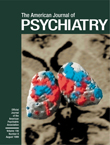Evaluation of Bipolar Disorder in Inpatients With Prelingual Deafness
Abstract
OBJECTIVE: This study retrospectively examined the occurrence of bipolar disorder in patients with prelingual deafness who were hospitalized for a psychiatric disorder. METHOD: The hospital charts since 1983 of all psychiatrically admitted deaf patients were retrospectively evaluated for diagnoses by using DSM-IV criteria. Those with a best-estimate diagnosis of bipolar disorder were compared to those with other diagnoses. RESULTS: There were 28 patients with prelingual deafness who had at least one psychiatric diagnosis from 1983 to 1998. Upon chart review, 11 (39.3%) were diagnosed with bipolar disorder. Patients with bipolar disorder and deafness had rates of inaccurate discharge diagnoses that were similar to those of other deaf patients (70.8% versus 56.7%). CONCLUSIONS: Bipolar disorder may be more common in inpatients with prelingual deafness than has been previously described in the literature. Further research regarding the sources contributing to misdiagnosis of psychiatric disorders in this population is warranted.



